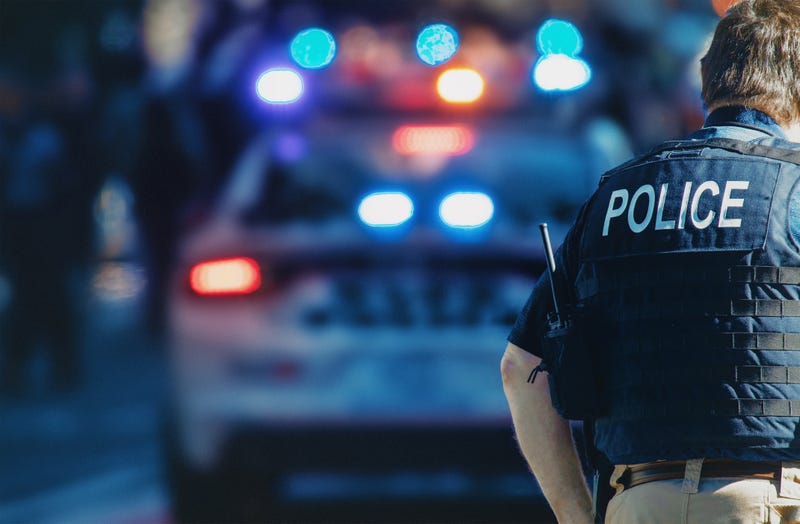
After facing a swift backlash for cancelling “Blue at the Zoo,” which offered a 20% discount to patrons wearing blue to celebrate the successes of the NOPD, the Audubon Institute has faced calls for a boycott.
“Obviously there's no argument as it relates to the utility of a police department in our society today,” Newell said on his show Monday morning. “At least there shouldn't be, but they decided to cancel this event, saying that the concept and the event had become unintentionally divisive. And as a result, there's been a cry in the streets and an attempt to actually ‘cancel’ the zoo. I will not participate in that cancel culture. The zoo is a gem. This zoo is an economic driver to our economy. The zoo is a major attraction for tourists that come here, not to mention all of the locals that bring their children there for the educational opportunity and experience of seeing animals that they will never see anywhere else in their lifetime. But be that as it may, this actually reveals some very troubling ingredients in our society today.”
Newell then turned his attention to Mike Cowan, Senior Fellow in Oxford at The Center for the Resolution of Intractable Conflicts, and local business leader Greg Rusovich, who joined the program to talk about an op-ed that they wrote titled “How anti-police extremists cowed the Aubudon Institute with racism rhetoric.”
“The motivation for me was really pretty straightforward,” Cowan said. “I've been involved in interracial and interfaith community organizing here for almost 30 years. Working at the center at Oxford, what we do there is we look at what we call intractable conflict. And what that really means is situations where communities are in a fight or an argument, or in division with each other in a way that paralyzes or limits or threatens the whole society. So the most extreme version of that we're seeing over in the Middle East right now, that's a division between two groups that is threatening to blow the whole place up right now. There also was the situation that happened in Northern Ireland and so forth. So my interest in this is around racial issues in the United States, because I think they keep the country from realizing its potential, and racial divisions act as a limit on the prosperity and the safety and the future of the city. So when Greg and I had decided to write this piece, what I really wanted to do was challenge a particular approach to dealing with these issues, which is called anti-racism and which I see as part of the problem, not part of the solution.”
“I believe this is a real frightening example of how radical elements can come into a community and sow division, provoke polarization, and cause problems rather than be helpful and be additive,” Rusovich said. “We're always better in the community when we keep it local. If we sit down across the table from one another and we talk out specific issues, how to fix the pumps at the Sewerage and Water board, how to stop the flooding of the streets, how to provide more policing, how to improve education, we make progress, or at least we collaborate. We find common ground. Where it comes off track is when one side tries to cancel the other, and tries to intimidate and bully. And that was a typical example of what happened here to a very fine institution and outstanding organization that's done great work over the decades. And it's not just Audubon, you know, it's all across the community and it's all across the nation. It’s really time for, for thinking individuals and individuals that seek collaboration to stand up and say, this is going off the track.”
“In the article you guys say today's most strident activists call themselves anti-racist,” Newell continued. “Around the country, their tactics are the same: 1) Paint those in charge of targeted organizations as racists. 2) Present them with a set of demands to which they must respond immediately. 3) Vilify them publicly if they don’t capitulate. 4) Demand their dismissal through marches, public meetings and social media (“Racist CEO Must Go!!”). Both of you know my history of 40 years in law enforcement, and Audubon has been a great partner to the JPSO. I think they lost a lot of the goodwill that they had achieved over the years and developing relationships with all sectors of the community, understanding the utility. It doesn't mean that you're embracing them to the extent to say that they're 100% perfect. I don't know if there’s a 100% perfect organization around. I haven't seen that organization!”
“What I particularly liked about this situation is the way the community responded,” Rusovich said. “In a lot of other communities, we see they do in fact, kowtow to these elements. And I was really proud of the way the community stood up and the people spoke out and said, okay, this is going too far. And it's an example of what New Orleanians are not going to tolerate. It built my civic pride once again, watching the reaction saying, no, we're not going to let these issues divide us. We seek collaboration and we're going to find a way through it. And the community responded in a very profound manner which I was very proud of.”
Hear the entire interview in the audio player below.




